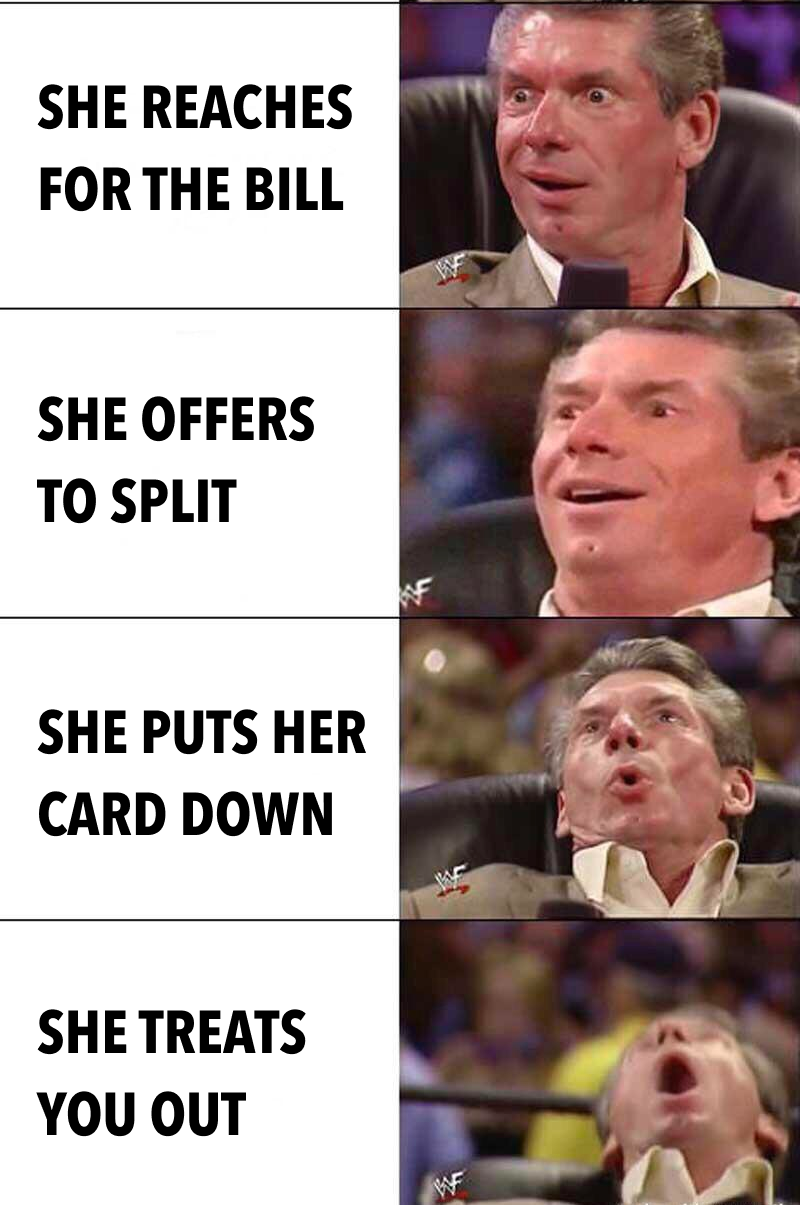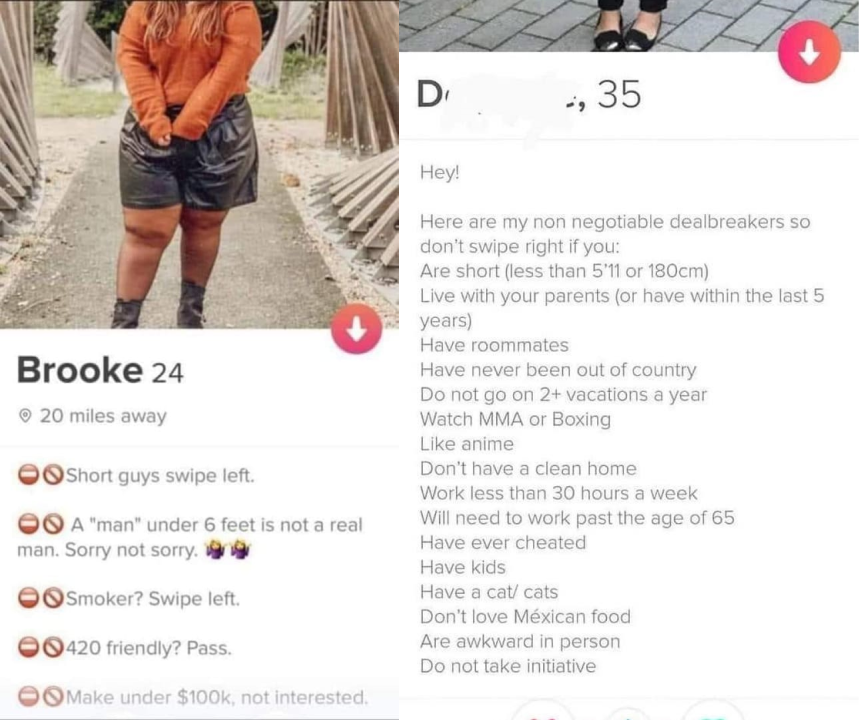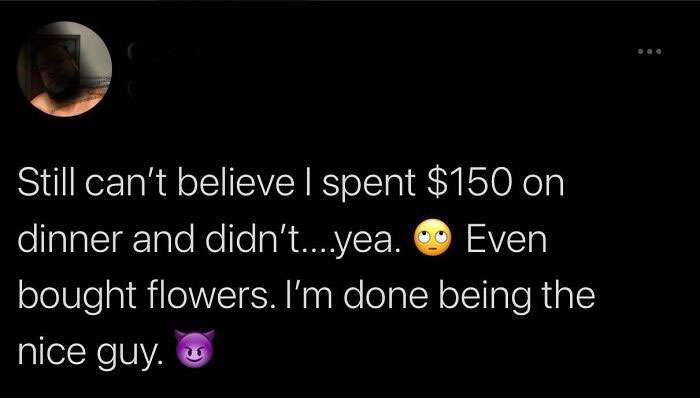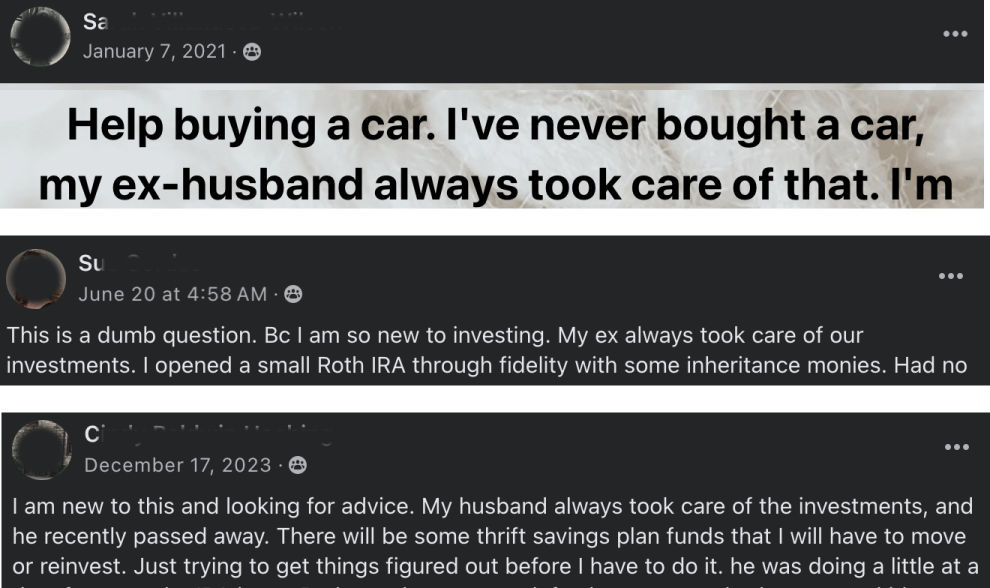It’s the summer of love. Many of my friends have met their significant others or tied the knot in 2024 so far.
One thing I’ve noticed between strong couples is that both partners have an effortless reciprocity between each other. The dynamic feels like a generous give-and-take versus one partner doing all the work.
While this might sound obvious, the landscape quickly changes when it comes to modern dating—particularly in the way that online dating changes singles’ expectations and behavior (which I’ll get to in a moment).
The main idea I’m proposing today is this:
Single women can stand out disproportionately from their competition with some high return-on-investment (ROI) dating moves.
Specifically, these high ROI moves embody the idea of being financially thoughtful.
NewTuber alert 🙋🏻
My YouTube channel is new! So your engagement and help goes a long way. Check out my recent videos:
• [Love+Money] The Rise of Low-Cost Weddings (I went to 3)
• [Investing] The once in a lifetime opportunity in finance
Thanks in advance!
My ideas today obviously don’t apply to kind, thoughtful women who have no problem splitting the bill or paying for themselves.
Instead, this is for the single women who have been conditioned to think of “man as (only) provider”— but are struggling to create a relationship with their desired high value man.
They stand to gain higher return-on-investment from their dating efforts by inverting the oldest relationship cliché—that the man should always pay.
Let’s start by looking at dating through the eyes of men.
The bar is so incredibly low for men to be impressed
Guess when’s the first time a man usually gets gifted flowers? It’s his funeral.
Working in the field of user experience means that my coworkers and I need to study the behavior of consumers.
As designers, we might think a design is easy to use, but the user has the final say.
Single women can stand to gain a lot by using a “UX lens” to see dating through the eyes of single men.
Most single men…
- Swipe endlessly on dating apps hoping to get a match, whereas women’s inbox are filled to the brim
- When he does get a match, he needs to finely manage the dating process and not fuck up, from good conversation to planning a date.
- On the date, he is expected to pay and be a generous tipper.
- Most dates are first dates and don’t turn into second and third ones. Dating becomes quite costly and it’s hard to not become jaded.
Now imagine this…You’re a woman who reads this article before going on a date.
You humor my point that it doesn’t take much to be just above average than the competition.
So you pick up a $10 bouquet – or it can be any thoughtful gesture, really – and give it to your date.
The result? He will remember you forever.

Chances are, he’s never experienced that in his entire life, let alone in his dating career.
You’re a special breed, a unicorn amongst a sea of dates expecting him to pay.
The relative cost for such a disproportionate result can be achieved with a negligible amount.
This is the power of high ROI dating—the cost to stand out is laughably low.
Consider some other high ROI dating moves:
- Earnestly offering to pay your share of the date
- Offering to pick up dessert after your date pays for a meal
- Bringing a small gift, coffee or snack at the start of a date
- Proposing and planning a date. Bonus points if it’s low cost or free.
A woman might not remember men who pay—because that’s the norm.
But a man will remember the women who reciprocate early on—because it’s so rare.
Ladies: if you find a man you want to keep, then do what the majority of your competition isn’t doing: give more.
How online dating exacerbates entitlement
“But I already get more than enough attention from men on dating apps and even at Trader Joe’s.”
That’s exactly the problem.
Single men tend to experience problems of opportunity: not finding enough eligible matches who’ll give them the time of day. This is why you’ll often hear “it’s a numbers game” in men’s dating advice.
On the other hand, women tend to have a filtering problem. It takes too much time and effort to sort through their matches and properly discern who they should date.
This incentivizes women to optimize for the filtering game, adding ever-increasing requirements.

Because men are playing the numbers game (especially in online dating), women will still get inundated with matches and opportunities regardless of their requirements.
All of this culminates in a game of distraction and dating burnout for women.
Just because women can get free meals and always expect a man to pay, doesn’t mean it’s the best strategy.
The right kind of reciprocity
In tech, there’s the phrase: if it’s free, then you’re the product.
Facebook, Instagram and a bunch of services are free because they sell our data.
“Free” can create a bunch of perverse incentives.
What’s the connection? Men often expect sex because they’ve paid for a date.

Surprisingly, I’ve also heard the same logic from women: “I felt bad that he paid for such a nice dinner…so I went home with him.”
This is not a good kind of reciprocity.
When women pay on dates, they help remove perverse incentives and expectations.
The recommendation is indeed counterintuitive: while it might feel “transactional” for a woman to pay or split the bill, this helps remove the chances of men acting in a transactional manner.
At worst, women pay for their share of the date.
At best, they plant the seed of a healthy relationship from the start.
Creating the right financial dynamic from the beginning
In my senior year of college, I was invited to a fancy recruiting dinner, where I was presented with a test: what do I order for dinner?
The company was paying. It was a nice American steakhouse.
The menu had the usual suspects: mid priced items and their most expensive selections (Tomahawk steak) that not even the interviewers would order.
Of course the strategy is to pick a reasonable meal. As a college grad, you don’t want to risk spending $60 more on an entree and lose out on a $60,000 job. That’s bad ROI.
The hidden test of this dinner was: was I going to take advantage of the company, just because I could? That would’ve reflected extremely poorly on me. And this was an accounting firm, to boot.
How you treat someone else’s finances reveals how much you respect them.
Similarly, if a single woman is truly interested in a man,even if given the opportunity to take more, it’s good to think twice.
If the man always pays, that sets the precedent of him being the provider.
In the long term, this creates dynamic of dependency. I’ve seen many posts by women in financial groups who talk about being in a bad position after a divorce or breakup, because they didn’t build up their financial autonomy.

The Financial Feminist urges women to get their finances in order to avoid relying on men for money and create their own financial independence. Here’s a quote from the author:
“We know from statistics that women who are dating men…a good chunk of them are looking for their partner for financial stability. The partner who has that stable job, who’s able to provide…I don’t ever have to think about that again. I get to date people and fall in love with them because I actually love them and I actually want to be with them, not because I’m financially dependent on them. I can also leave a relationship at any time because I’m not financially dependent on them.
Tori Dunlap as interviewed on ChooseFI
When you remove the necessity to rely on a man. That’s a different level of financial freedom.
What single men can do
Of course, men play a big role in enabling the provider-taker dynamic.
If men carelessly give validation in the form of endless swipes, likes and free meals, then they’re not giving women on the other side of the screen any motivation to change.
While we’re not going to alter the evolutionary drive that makes men carelessly dole out attention to any attractive woman, serious men trying to find their match can focus on what’s in their realm of control. And that is to be more selective.
The relationship book Gatekeeper asserts that “few men are taught the skills to assess the costs and benefits of a romantic investment.”
Gatekeeper suggests that men “accept responsibility for our romantic choices [and] grant ourselves the freedom to have standards. We give ourselves the power and the duty to reject arrangements that bring misery and chaos.”
Times are changing
No high value man I know wants a woman who wants to solely rely on him.
We should celebrate the cultural progress that results in women making more money and having more financial empowerment than ever before in history.
This means that more men than ever also expect women to have higher provider energy, even if that just means providing more for themselves.
There will be those who balk at this and say “you’re not a real man” if you let her pay. But consider this…
- Men: If all that it takes you to feel less than man is that woman pays, then how strong is your masculine, really?
- Women: If all that takes for you to feel less of a woman is that you simply offer to pay, then how strong is your feminine?
In my dating career, only a handful of women have wanted to split the bill or earnestly treated me out after I treated them.
Then the love of my life comes waltzing in.
She offers to pay on the first date.
I could tell that she was just a fair and kind person.
(I wanted to pay, communicated that, and suggested we take turns. One date led to 30 and counting…)
On our second date, we met up for a walk around the park. I was blown away that she prepared me a hot cacao drink in a mason jar.
Who is this woman??
I was instantly bragging about her to all my friends.
What I didn’t understand at that time was not only was our romantic connection developing, but we were developing a friendship based on mutual respect.
Women often express the desire to marry their best friend. Which led me to think:
How do we treat friends?
Do we expect them to pay every time you go out?
Do our besties expect us to cover every cost?
Of course not. (If you said yes—sorry, you are a sociopath.)
The quality underlying friendship is respect.
You love and respect them for who they are.
You don’t objectify them as only someone who can provide for you.
For those looking for a best friend to marry…consider treating them like one from the beginning.
It’s not all about the money
I hope that the point is not lost that what I’m talking about is the energy of reciprocation, which lies on a broad spectrum.
Feeling provided for is different from providing FOR someone.
There are many ways to feel provided for, which takes communicating about your love languages and being honest about who you are early in the dating process.
I hope I’m not saying anything radical here.
I’d love to hear from women who have paid on dates.
What has your experience been like? Do you agree or disagree with this high ROI dating approach?

free TRAINING worth $79
Beat 90% of stock pickers by being lazy.
Learn what to buy in the stock market, how to buy, and dangerous mistakes to avoid.
